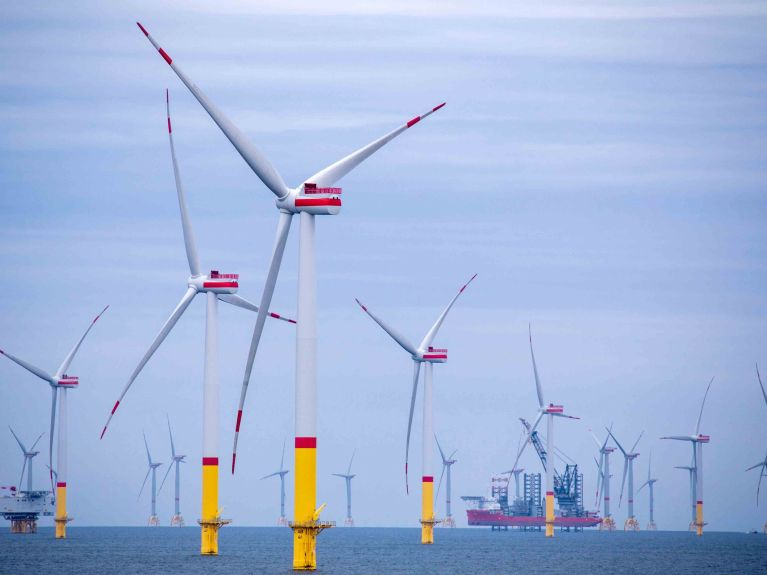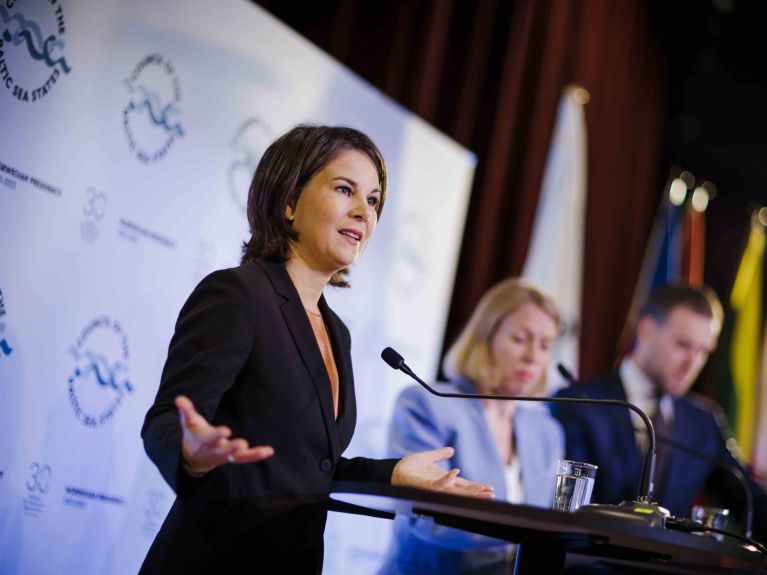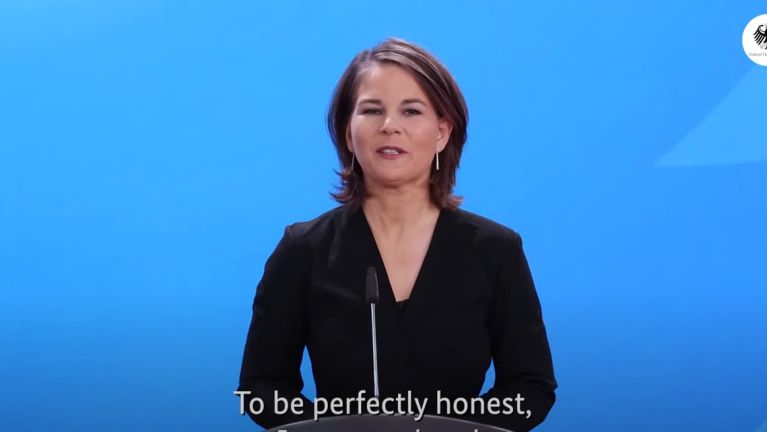New significance for the Council of the Baltic Sea States
Germany held the presidency of the Council of the Baltic Sea States for one year. One central focus of its presidency was the expansion of wind power in the Baltic Sea.

In July 2022, a few months after Russia began its invasion of Ukraine, Germany took over the presidency of the Council of the Baltic Sea States for one year - for three decades the Council has been strengthening cooperation between the countries that neighbour the Baltic Sea. The war also overshadowed Germany’s presidency of this organisation. Before its presidency ends in June, the foreign ministers of the member states will be meeting once again in the Hanseatic town of Wismar in the north of Germany. One central topic that will also be raised at this meeting will be the expansion of offshore wind power in the Baltic Sea.
Establishment of the Council of the Baltic Sea States following the end of the Cold War
The Council was established in 1992 as the result of a German-Danish initiative. The objective was to create a forum for regional cooperation between the western and eastern Baltic states just a few years after the end of the Cold War. Today, ten member states and the European Union belong to this intergovernmental organisation. Besides Germany and Denmark, the members are Norway, Estonia, Finland, Lithuania, Latvia, Poland, Sweden and Iceland.
On 1 July 2022, Germany took over the presidency of the group, setting itself three priorities for the following twelve months: to promote offshore wind power, to increase the number of youth encounters and to remove dumped munitions from the Baltic Sea.
Dieses YouTube-Video kann in einem neuen Tab abgespielt werden
YouTube öffnenThird party content
We use YouTube to embed content that may collect data about your activity. Please review the details and accept the service to see this content.
Open consent formSuspension of membership and withdrawal of Russia
Russia also used to be a member of the Council of the Baltic Sea States. Only days after Russia began its war of aggression against Ukraine, however, the other member states decided to suspend Russia’s membership. Russia withdrew from the Council in May 2022.
Sweden and Finland, both of which are members of the Council, decided simultaneously to join Nato in response to the Russian attack. A few weeks before Germany’s presidency of the Council began, German Foreign Minister Annalena Baerbock made the following statement at the end of May 2022: “In the Baltic Sea region of all places, where for decades we have been pinning our hopes on dialogue with Russia and regional cooperation, there is now a break in security policy. The idea that Sweden and Finland would now be taking this step to join Nato was never planned - but Russia has left them with no other option.”
Expanding offshore wind power in the Baltic Sea
One key objective of the German government is to expand wind power in the Baltic Sea region with a view to contributing to the energy transition in Germany and Europe. At a Wind Forum in May 2023 in Berlin, Foreign Minister Baerbock described the sea as a “treasure for green energy”. The European Commission estimates the capacity for wind power in the Baltic Sea to be more than 93 gigawatts, she said. Adding that this is the equivalent to the output of around 90 average-sized nuclear power plants.

In Baerbock’s opinion, expanding wind power is also vital in terms of security policy because it will allow dependencies on fossil fuels such as oil and gas to be reduced. Every wind turbine that is built is “an investment in our security, because transitioning to green energy makes us less dependent on oil, coal and gas imports from countries we cannot always rely on,” said Baerbock.
Youth encounters and munitions removal
Up to 400,000 tonnes of conventional explosives and around 40,000 tonnes of chemical weapons are currently littering the bottom of the Baltic Sea, having been dumped there after the end of the Second World War. During its Council presidency, Germany committed itself to strengthening regional cooperation in the fight against this threat to the environment and marine life. Furthermore, the German government took steps to increase the number of personal encounters between young people from different Baltic Sea countries.



